"Ecuadorian pitaya has found its place in the competitive U.S. market, standing out for its exotic taste and unique properties. Despite supply chain challenges and price volatility, this fruit continues to gain popularity. Currently, the United States consumes close to 80% of the pitaya production exported by Ecuador, making it the main market for Ecuadorian producers looking to offer a fresh and quality product," says Sergio Intriago, CEO of Exposour.
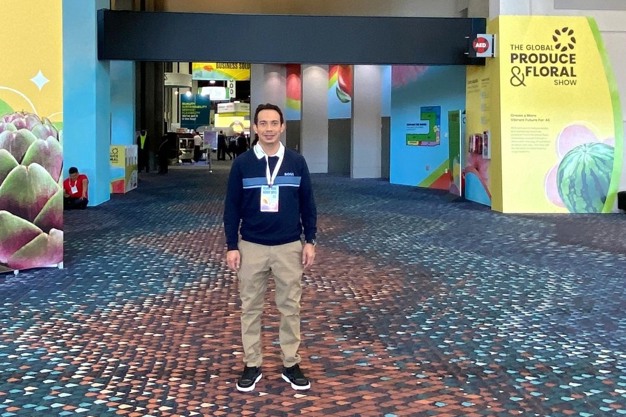 Sergio Intriago, CEO of Exposour, at the Global Produce and Floral Show in Atlanta.
Sergio Intriago, CEO of Exposour, at the Global Produce and Floral Show in Atlanta.
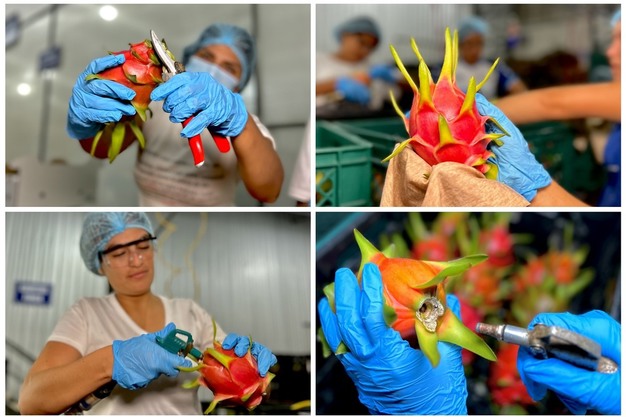
According to Intriago, "pitaya has recorded an 8% year-on-year growth in the U.S. market, although this year we have seen a slight contraction." The company's exports have remained stable and the prospect is to close 2024 with around 80 containers exported; a figure they hope will increase in 2025.
According to Intriago, "although fresh fruit consumption has dropped in recent months due to the economic contraction, the U.S. market continues to respond well when the price per box remains between 14 and 18 dollars," he says. However, in previous years, the product was selling for between 22 and 24 dollars per box, a price that reflects the high demand and the quality of this fruit when at its peak.
"Despite price fluctuations and the impact of overproduction in other years, innovative methods have been implemented in the crop's production process. This year, the production has remained constant. These strategies have been implemented to make it possible to harvest at different times and avoid uncontrolled production peaks," says Intriago.
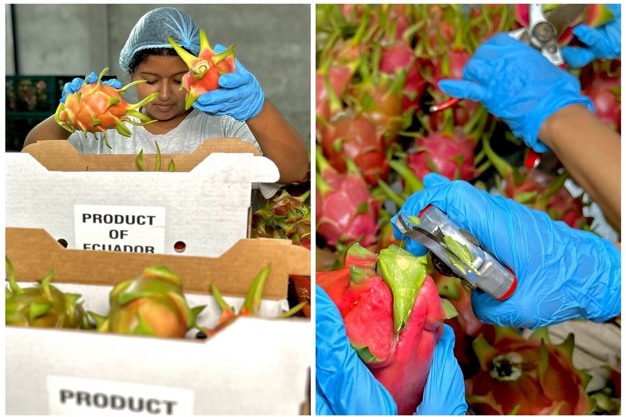
To ensure a stable quality, the company prioritizes coordination with its local suppliers and guarantees harvesting practices that allow the fruit to reach its destination in optimum condition. "We have a GlobalGAP certification and we are working on getting a SMETA one next year with the aim of promoting sustained and continuous improvement throughout the entire value chain," says Intriago. This certification guarantees the implementation of sustainable and quality practices at all stages of production and distribution.
Since most shipments to the United States are made by sea, ensuring the fruit's good preservation during transport is key for Exposour. "We have implemented methods to prevent the cold chain from being broken in every shipment and guarantee that the product arrives fresh," says Intriago. This becomes especially relevant in times like the current one, where competition for container space is high due to the ongoing mango season, which has led to a significant reduction of the space available for pitaya exports.
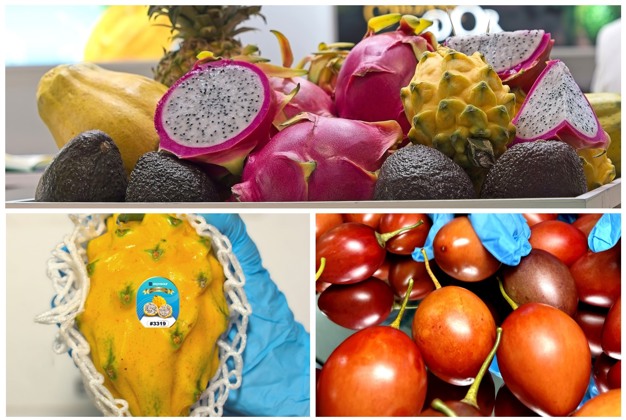
The company is also facing challenges related to infrastructure, such as power outages that can affect the production. Although such power shortages are an obstacle, Exposour has managed to limit their impact on the fruit's cultivation and processing, thus ensuring the continuity of its supply.
Despite these challenges, Intriago highlights Exposour's ability to adapt and anticipate market needs. "We are facing competitors from Mexico, Guatemala and, soon, Peru; however, we are optimizing the harvest and post-harvest processes to keep a competitive advantage in terms of quality and availability," he says.
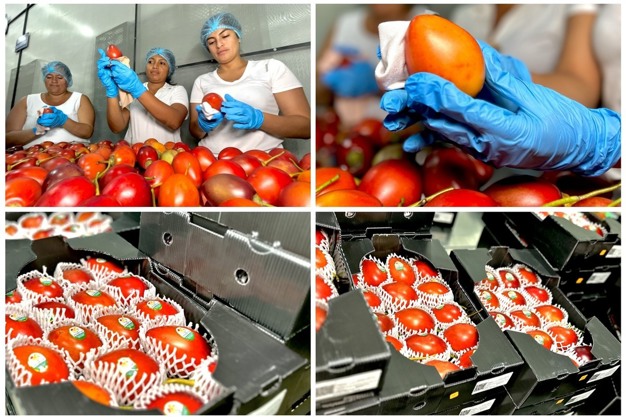
Besides its impact on the U.S. market, the Ecuadorian pitaya industry plays a fundamental role in local economies. Each exported container generates more than 700 hours of direct employment in packing alone, in addition to hundreds of hours in cultivation and transport. The activity is not just beneficial for producers, but also for suppliers and the entire logistics chain in Ecuador, says Intriago.
For more information:
Sergio Intriago
Exposour
Tel.: +1 305 490 13 61
[email protected]
www.exposour.com
